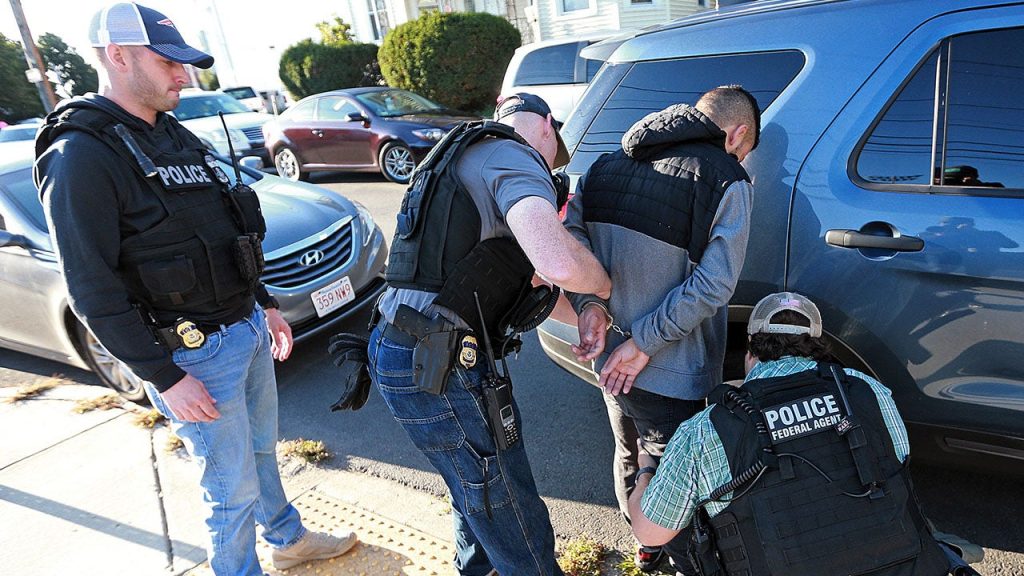The impending Trump administration is poised to reignite the debate surrounding sanctuary jurisdictions, with conservative legal group America First Legal (AFL) leading the charge. AFL, spearheaded by Stephen Miller, Trump’s incoming deputy chief of staff for policy, has issued notices to nearly 250 officials within these jurisdictions, warning of potential legal repercussions for obstructing federal immigration enforcement or concealing undocumented immigrants. This preemptive move foreshadows a clash between the administration’s promised “historic” deportation campaign and the resistance it is likely to encounter from jurisdictions committed to protecting their immigrant populations. The core issue lies in the conflicting interpretations of federal authority over immigration versus local autonomy, and the potential legal vulnerabilities of sanctuary policies.
Sanctuary jurisdictions, predominately located in Democrat-led states like California, Colorado, Massachusetts, and Arizona, have implemented policies that limit or prohibit local law enforcement cooperation with Immigration and Customs Enforcement (ICE). These policies are defended on the grounds that local jurisdictions should not be compelled to act as federal immigration agents, and that fostering trust between law enforcement and immigrant communities enhances public safety by encouraging reporting of crimes. Conversely, opponents of sanctuary policies argue that they shield deportable criminals, releasing them back into communities and posing a threat to public safety. This fundamental disagreement is at the heart of the legal battle brewing between the incoming administration and sanctuary jurisdictions.
AFL’s legal argument centers on the supremacy of federal immigration law. Their notice letter to officials cites federal statutes prohibiting state and local interference with communication about immigration status with the Department of Homeland Security (DHS). Further, it highlights the federal crime of concealing, harboring, or shielding undocumented immigrants. AFL contends that sanctuary policies violate these federal laws, exposing officials and jurisdictions to criminal and civil liability, including lawsuits from victims of crimes committed by undocumented immigrants. The organization’s newly launched website provides a map of “sanctuary strongholds,” identifying jurisdictions and providing contact information for elected officials, further escalating the pressure on these locales.
Beyond the notices, AFL is pursuing multiple avenues to bolster its legal offensive. They have petitioned the Department of Justice’s Office of Violence Against Women for data on the citizenship status and nationality of individuals charged with crimes against women and children. This data collection aims to establish a link between undocumented immigrants and these crimes, strengthening their argument against sanctuary policies. Simultaneously, AFL is filing information requests with mayors, governors, and other officials nationwide, targeting organizations perceived as undermining federal immigration enforcement. These actions demonstrate a concerted effort to gather evidence and build a case against sanctuary jurisdictions.
AFL’s senior vice president, Reed D. Rubenstein, underscored the urgency of the issue, citing the recent arrest of an undocumented immigrant in New York City in connection with a horrific murder as a prime example of the dangers posed by sanctuary policies. Rubenstein argues that these policies endanger citizens, undermine the Constitution, and erode the rule of law. This incident, and others like it, are likely to be central to the Trump administration’s justification for aggressive enforcement actions against sanctuary jurisdictions.
The anticipated clash between the Trump administration and sanctuary jurisdictions is shaping up to be a protracted and complex legal battle. While some jurisdictions are doubling down on their resistance, passing resolutions reaffirming their commitment to limiting cooperation with ICE, others have signaled a willingness to engage with the incoming administration. Recent meetings between Trump’s border czar, Tom Homan, and officials like New York City Mayor Eric Adams and Illinois Governor J.B. Pritzker suggest a potential for cooperation on deporting violent criminal offenders, even within sanctuary jurisdictions. This nuanced landscape indicates that the enforcement of immigration laws under the Trump administration will likely involve a combination of legal challenges and strategic collaborations with local authorities. The ultimate outcome remains uncertain, but the stage is set for a renewed national debate on immigration, federal authority, and the rights of local communities.


